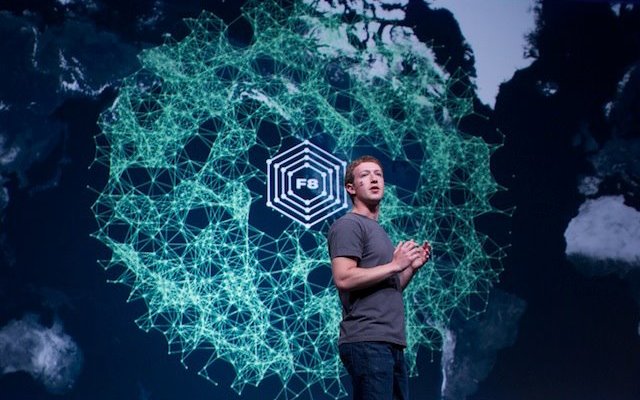
Deciding Our f8
- by Jason Kincaid
- in Essays
- posted February 21, 2017
It feels in poor taste to criticize Mark Zuckerberg at this critical juncture. The man just stood before the world and painted a path forward, a way out, from this quagmire of chaos. By way of shouldering this burden, he has finally reckoned with his role in creating it. And crucially, he has given us hope for a better future at a time when we need it most.
His PR team deserves a raise.
The trouble is that for all its noble and worthy aspirations, Facebook lives in the hyper-competitive realm of advertising. It traffics in attention, in addiction, in getting you to share more, in making you feel shitty for not sharing more successfully.
Oh sure, there are myriad cases of people finding and being good to each other. Some are a matter of scale — you get 1.86 billion humans tapping, you get a few star-crossed tales, guaranteed. But the truth is Facebook employs gifted product designers who genuinely want to help people connect, in the most sincere sense of the word.
Yet sooner or later the question of numbers come up. Of engagement. Of ad load
1
. Of how this moves the needle.
Which is why the core Facebook experience is the same as it ever was: clocking time on News Feed.

For all its moving fast and breaking things Facebook’s reputation as an innovator is generously embellished by myth-making. This sounds moronic in light of Facebook’s explosive market cap — but it doesn’t take a visionary to see that Zuckerberg’s product genius has been graded on a minty-green curve.
First let’s scroll quickly past the long list of flops, like Facebook Home (Zuckified Android, sans Morgan Freeman) and Facebook Paper (News Feed 2.0), whose thudding underachievement can perhaps be forgiven by the $240 billion of value Facebook has amassed in the interim.
More recent flubs include Messenger Bots, whose rollout was so underwhelming that product lead David Marcus later admitted they were overhyped and underpowered. Lukewarm reception to Zuckerberg’s other obsession — live video — led Facebook to terminate its content deals last month.
And the arrival of VR — the platform Facebook can finally control, after living under Apple and Google’s rules for so long — is progressing at timescales more in line with municipal rail extension than tech gadgetry.
I don’t want to be entirely unfair: Zuckerberg’s acquisition of Instagram looks more profound by the day. But Facebook’s successes are concentrated in the realms of acquisition and facsimile, not in fundamentally reinventing itself.
So when we hear about Zuckerberg’s grand new vision, we should not merely dwell on the political and ethical repercussions of his hyper-local-global utopia. We must mull what it looks like when the execution is off, when idealism isn’t moving the needle — and when News Feed stops laying its golden eggs.

Tech companies speak in half-truths, so it’s prudent to move past Zuckerberg’s obvious motivations — like assuaging the guilty consciences of his employees — and ask what other forces are driving this change. Could it be that as News Feed trends away from friends and toward undifferentiated news and video, it becomes less defensible? (Check out Google Now and even iOS’s News widget). Have attempts to spur original content sharing fallen flat, with live video underperforming? Does Facebook need to give investors a narrative to look forward to, as it cuts away the engagement-gushing gristle of fake news?
Enter communities. Messaging is sticky — hence the $19 billion Facebook spent to buy WhatsApp — and communities are messaging orgies. By redirecting its efforts here Facebook can eat away at Reddit and Nextdoor and Slack, and other apps that cater to the in-the-mix feels that Facebook has hitherto left on the table.
But let’s be real: if Facebook’s algorithms are constantly nudging folks to join communities helmed by charismatic leaders, are the most-active groups going to be nuanced discourses about civic engagement — or the unholy lovechildren of Buzzfeed and Milo Yiannopoulos?
And as these communities become meaningful, in a business sense, their dynamics will be compromised by the demands of the business. Nuance will be sacrificed for engagement, as it always is. Eventually Facebook will stop growing, and there will be hard questions internally.
“It turns out communities are more vibrant when there is… healthy debate.”
“And what does… healthy debate look like?”

And lest we forget the usual baggage — the needy nags, the mind-candy of the day bursting from each screen, the frothy ad loads — woven into our new social fabric, bedazzled by brands.
Leading an exuberant Zuckerberg to proclaim,
“Today, we couldn’t be prouder that over half of Facebook’s 2.3 billion users are engaging in groups in new and meaningful ways. Many of them are joining communities for the first time…”

Then again, if Facebook can bring us closer to fulfilling human interaction that betters our local, national, and international communities — and it allows enough transparency for independent researchers to affirm this: maybe we can handle some ads.
Zuckerberg’s letter closes with a quote by Abraham Lincoln, a month before he signed the Emancipation Proclamation (emphasis mine):
“We can succeed only by concert. It is not ‘can any of us imagine better?’ but, ‘can we all do better?’ The dogmas of the quiet past, are inadequate to the stormy present. The occasion is piled high with difficulty, and we must rise with the occasion. As our case is new, so we must think anew, act anew.”
I say we take him at face value. Mark Zuckerberg needs our help shaping our global future — which, given those 1.86 billion users, will require a lot more transparency on his part. And together, we must be vigilant against the many ways Facebook mechanically conspires against the better angels of its nature.
Published February 21, 2017
Jason Kincaid is a former technology reporter who has written about Facebook many times. He co-authored a slimly-read book about the firm and was once punked by its engineers.
If you enjoyed this, may he suggest: The Burned-Out Blogger’s Guide to PR.